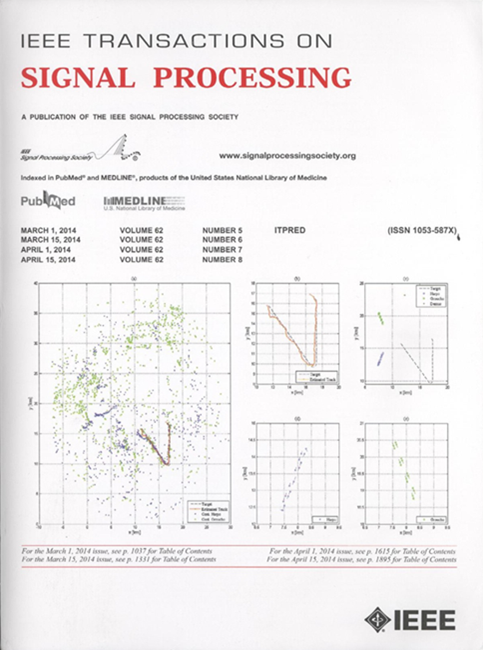Robust Distributed Cooperative Localization in Wireless Sensor Networks With a Mismatched Measurement Model
IF 4.6
2区 工程技术
Q1 ENGINEERING, ELECTRICAL & ELECTRONIC
引用次数: 0
Abstract
Distributed cooperative localization (CL) possesses the merits of high accuracy, robustness, and availability, and has garnered extensive attention in recent years. Due to the complex signal propagation environment, measurements often include errors from various unknown factors, leading to a mismatch between the nominal and actual measurement models, which reduces estimation accuracy. To tackle this problem, this paper proposes a robust distributed CL algorithm. First, we establish a unified measurement model incorporating latent variables capable of characterizing nonideal errors in the absence of additional prior environmental information. The latent variables are modeled using Gaussian-Wishart conjugate prior distribution with hyperparameters. Next, we decompose the robust CL problem into the alternate estimation of the variational posterior for agent positions and latent variables. By constructing the probabilistic graphical model, the estimation can be implemented in a distributed manner via the message passing framework. Closed-form solutions are derived for updating the variational posteriors of agent positions and latent variables, ensuring all parameters can be computed algebraically. Additionally, we analyze the algorithm's performance, computational complexity, and communication overhead. Simulation and experimental results show that the proposed algorithm exhibits superior estimation accuracy and robustness compared to existing methods.具有不匹配测量模型的无线传感器网络中的稳健分布式合作定位
分布式协同定位(CL)具有高精度、鲁棒性和可用性等优点,近年来受到广泛关注。由于信号传播环境复杂,测量结果往往包含各种未知因素造成的误差,导致标称测量模型与实际测量模型不匹配,从而降低了估计精度。针对这一问题,本文提出了一种鲁棒分布式 CL 算法。首先,我们建立了一个统一的测量模型,其中包含能够在没有额外先验环境信息的情况下表征非理想误差的潜变量。潜变量使用带有超参数的高斯-维沙特共轭先验分布建模。下一步,我们将鲁棒 CL 问题分解为代理位置和潜变量变异后验的交替估计。通过构建概率图形模型,可以通过消息传递框架以分布式方式实现估计。我们推导出了更新代理位置和潜变量变分后验的闭式解,确保所有参数都能通过代数方法计算。此外,我们还分析了算法的性能、计算复杂度和通信开销。仿真和实验结果表明,与现有方法相比,所提出的算法具有更高的估计精度和鲁棒性。
本文章由计算机程序翻译,如有差异,请以英文原文为准。
求助全文
约1分钟内获得全文
求助全文
来源期刊

IEEE Transactions on Signal Processing
工程技术-工程:电子与电气
CiteScore
11.20
自引率
9.30%
发文量
310
审稿时长
3.0 months
期刊介绍:
The IEEE Transactions on Signal Processing covers novel theory, algorithms, performance analyses and applications of techniques for the processing, understanding, learning, retrieval, mining, and extraction of information from signals. The term “signal” includes, among others, audio, video, speech, image, communication, geophysical, sonar, radar, medical and musical signals. Examples of topics of interest include, but are not limited to, information processing and the theory and application of filtering, coding, transmitting, estimating, detecting, analyzing, recognizing, synthesizing, recording, and reproducing signals.
 求助内容:
求助内容: 应助结果提醒方式:
应助结果提醒方式:


